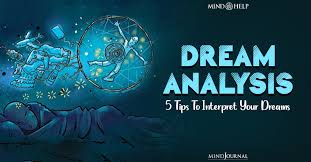Dreams have fascinated humanity for millennia, wheat dreams sparking a wide range of theories about their purpose and meaning. Whether viewed through the lens of psychology, culture, or spirituality, interpreting dreams can provide valuable insights into our subconscious minds. This article explores various approaches to dream interpretation, aiming to offer a comprehensive guide to understanding the messages behind our dreams.
The Psychological Perspective
Sigmund Freud, the father of psychoanalysis, was one of the earliest figures to delve into dream interpretation. He proposed that dreams are a manifestation of repressed desires and unresolved conflicts. According to Freud, the content of dreams is divided into manifest content (the literal storyline) and latent content (the hidden psychological meaning). For example, dreaming about being chased might symbolize underlying anxiety or a fear of confrontation.
Carl Jung, another influential psychologist, expanded on Freud’s ideas by introducing the concept of the collective unconscious. Jung believed that dreams tap into universal archetypes and symbols shared across cultures. For instance, a dream featuring a wise old man or a nurturing mother could be seen as an expression of archetypal figures representing wisdom or care.
Cultural and Spiritual Interpretations
Different cultures and spiritual traditions offer diverse perspectives on dream interpretation. In many Indigenous cultures, dreams are considered a means of receiving guidance from the spiritual world or ancestors. For instance, Native American tribes often view dreams as a source of spiritual insight or prophecy. Similarly, in ancient Egyptian culture, dreams were seen as messages from the gods, with dream interpreters playing a crucial role in deciphering these divine communications.
In Eastern philosophies such as Buddhism and Taoism, dreams are often viewed as a reflection of the mind’s state and a tool for self-awareness. The practice of dream yoga in Tibetan Buddhism, for example, involves cultivating awareness within dreams to achieve greater spiritual insight and enlightenment.
Modern Approaches to Dream Analysis
In contemporary psychology, dream interpretation often focuses on understanding the emotional and cognitive aspects of dreams. Modern approaches may use techniques such as dream journaling, where individuals record their dreams and reflect on their personal significance. This practice helps identify recurring themes or symbols and explore how they relate to one’s waking life.
Additionally, cognitive theories suggest that dreams play a role in memory consolidation and problem-solving. For instance, dreaming about a challenging situation might be the brain’s way of processing and finding solutions to real-life problems.
Common Dream Themes and Their Meanings
Certain themes recur across different cultures and individuals. Here are a few common dream scenarios and their potential interpretations:
- Being Chased: Often linked to feelings of anxiety or avoidance in waking life. It might indicate that you’re running away from a problem or conflict.
- Falling: This dream could symbolize a lack of control or insecurity. It may reflect fears related to failure or loss of stability.
- Flying: Flying dreams can represent a desire for freedom or a sense of empowerment. Alternatively, they may signify escaping from limitations or achieving personal goals.
- Losing Teeth: This common dream might be associated with concerns about appearance, self-esteem, or communication issues.
- Being Naked in Public: This dream often relates to vulnerability or feelings of exposure. It might reflect anxieties about how others perceive you or a fear of being judged.
Conclusion
Dream interpretation is a multifaceted field, blending psychology, culture, and spirituality. While no single approach offers definitive answers, exploring the meanings behind our dreams can provide valuable insights into our subconscious minds and personal experiences. Whether through analyzing symbols, reflecting on recurring themes, or seeking spiritual guidance, understanding dreams can enhance self-awareness and personal growth.
Ultimately, the most meaningful interpretations are those that resonate with you personally, helping you navigate your inner world and improve your waking life.




